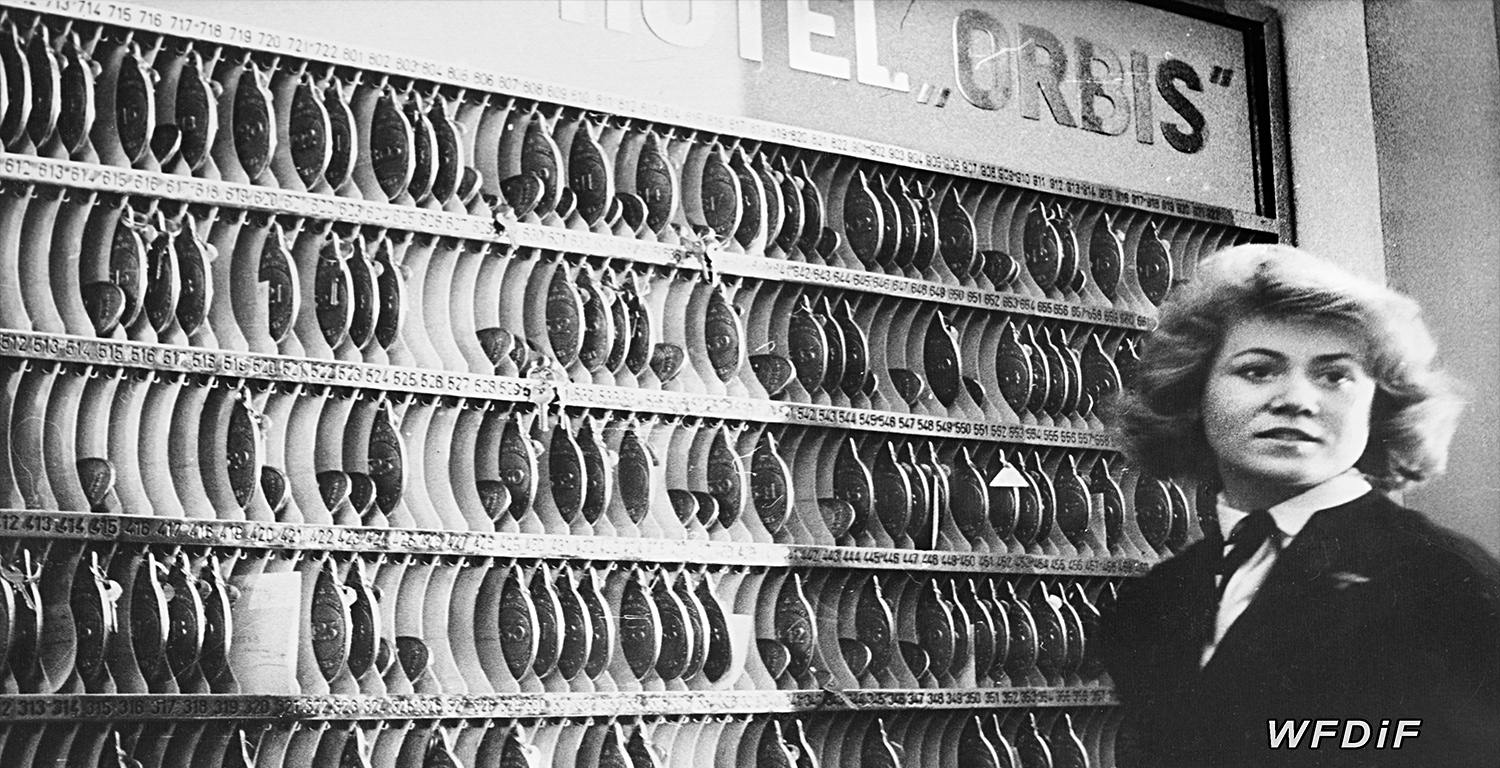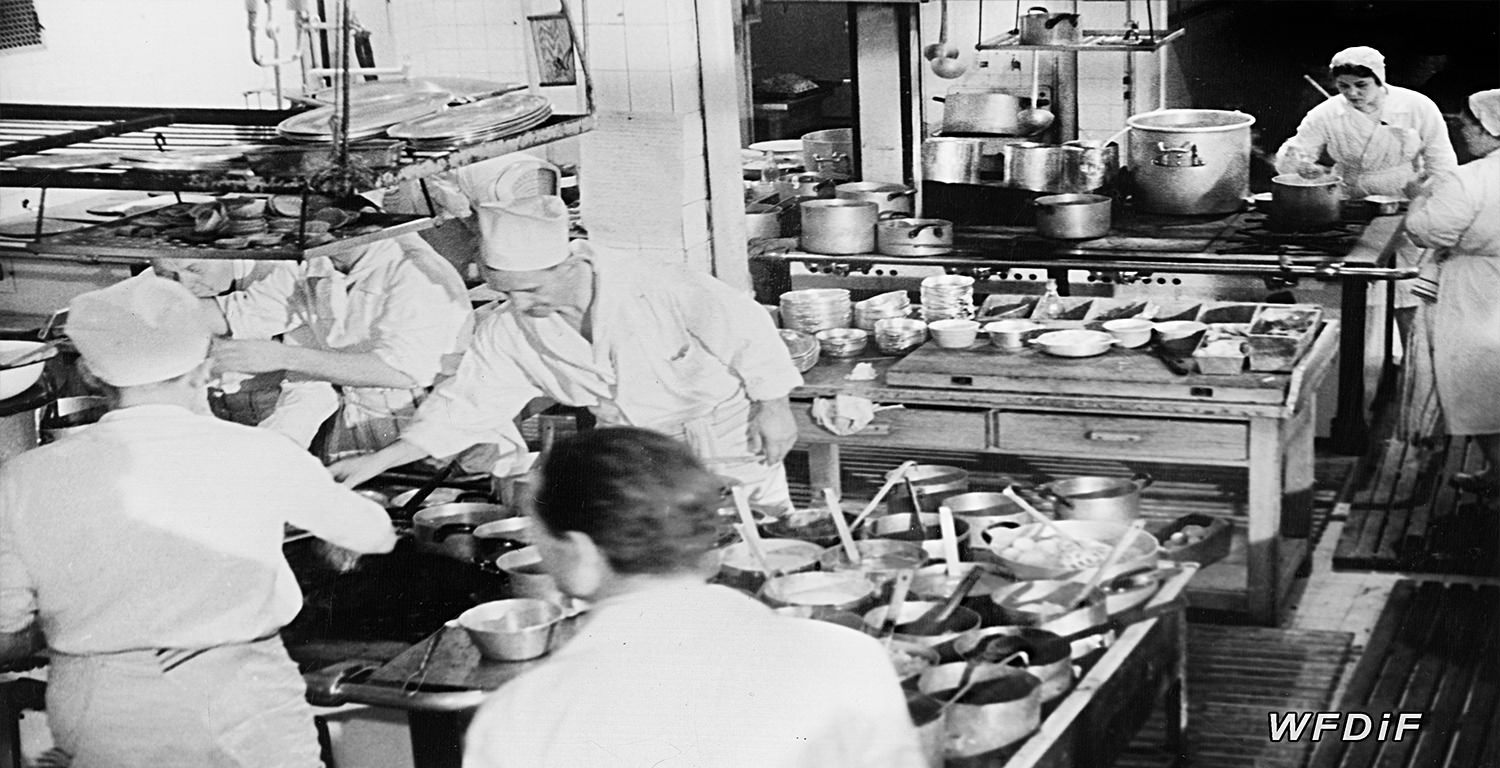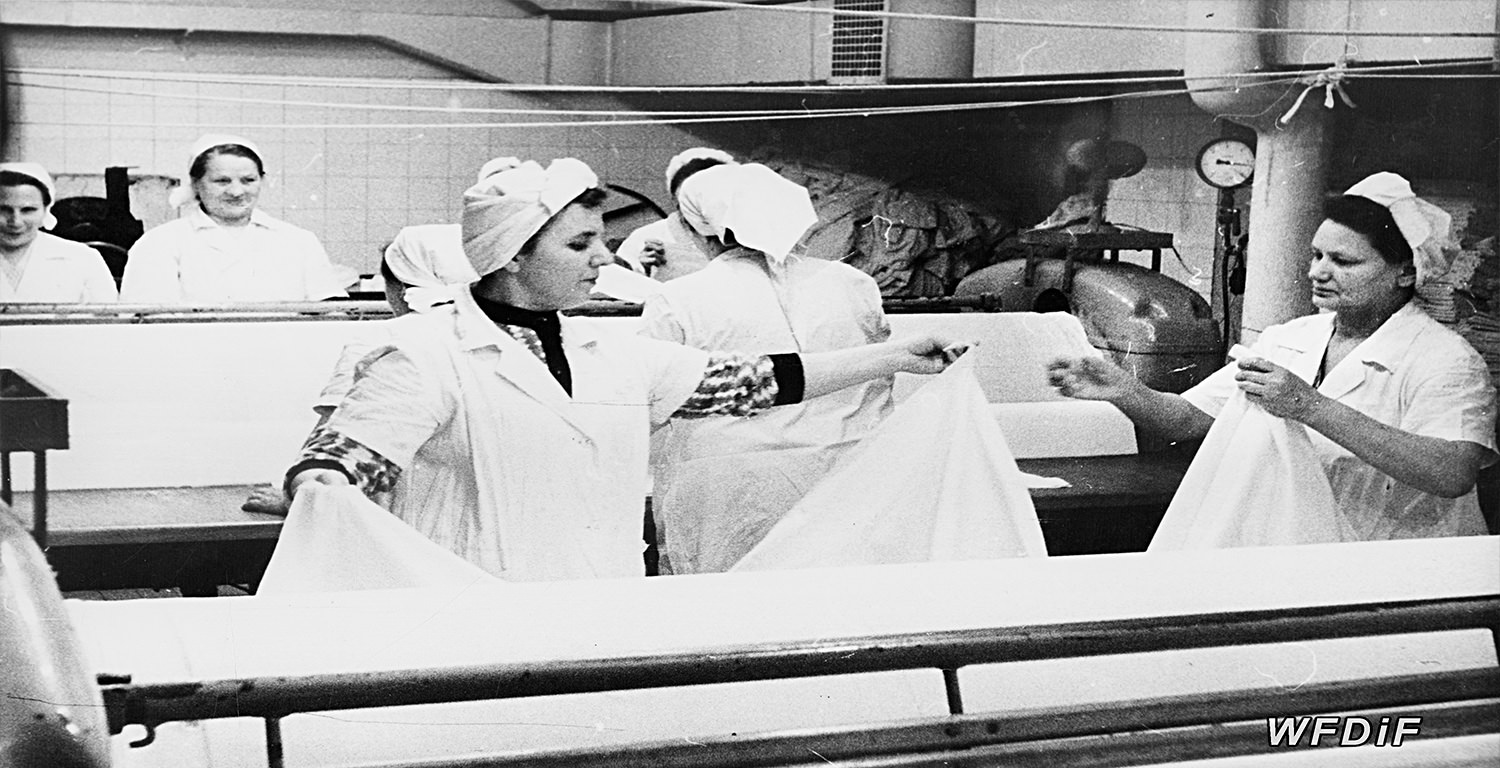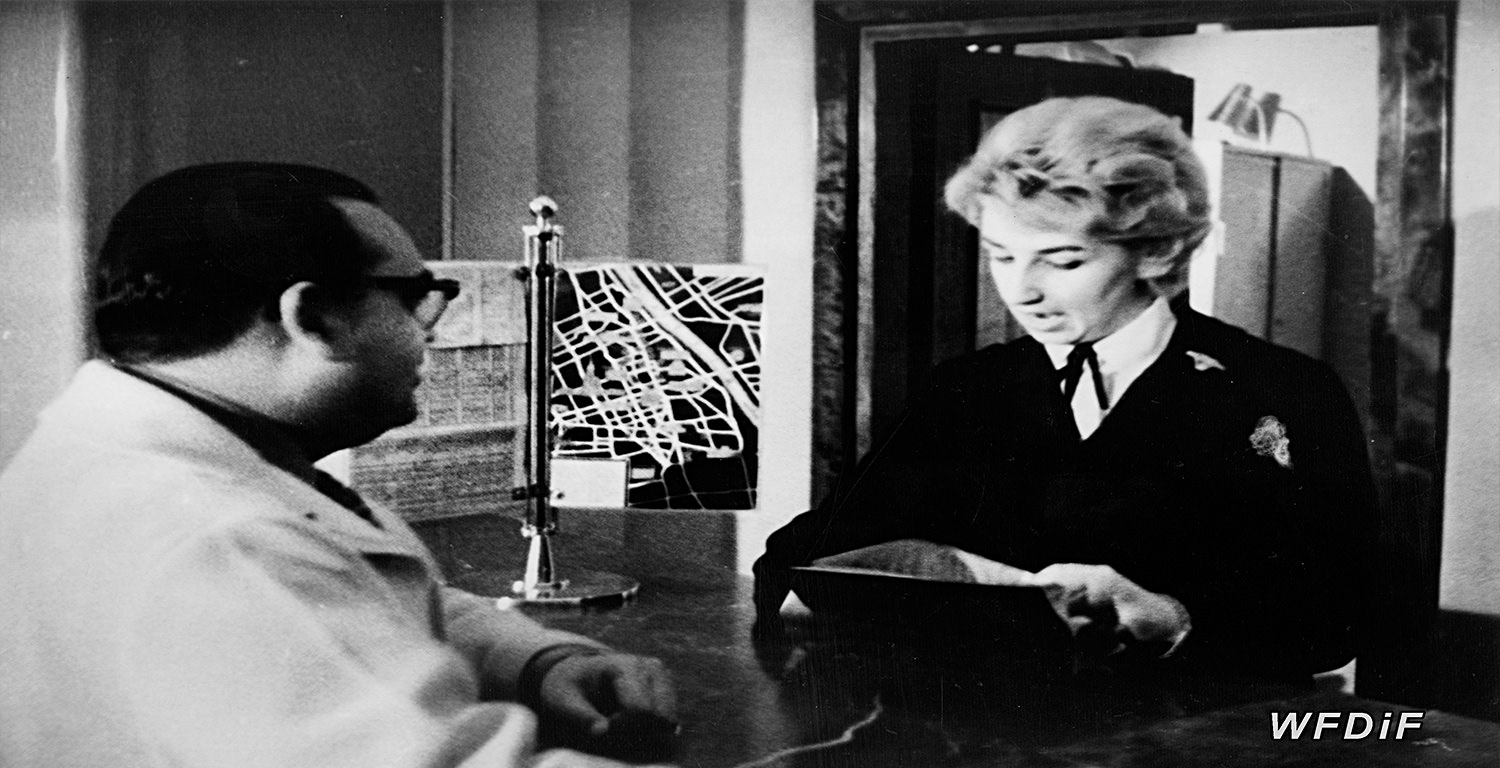In Kwiatkowska’s observation of the lavish Grand Hotel Orbis in Warsaw, we witness the efforts of the workers behind the scenes, as they contribute to the venue’s offer for international visitors in the capital city. The documentary starts with a shot of a writing machine and a telegraph before swiftly moving to the hotel’s lobby. Both the marble countertop of the reception desk and the sign ‘Exchange of Foreign Currency’ indicate that the accommodation is only available to wealthy tourists and not to average citizens of Communist Poland.
To make the distinction between the guests and the ordinary Poles crystal clear, the director lets us hear some tourists speaking English, as they pick up their room keys. Carrying quality suitcases, these elegant guests wear expensive fur coats.
We soon learn from the narrator that the hotel staff includes 860 people who work around the clock. It is their daily routines, not those of the tourists, that the camera follows.
We look at busy room maids and the hectic atmosphere in the laundry room and kitchen, where women sweat to complete their tasks.
Kwiatkowska then moves to the manager’s office. He’s sitting behind his desk and speaking on the phone. From his conversations, we discover that the hotel provides childcare and medical care along with its other services to cater to the needs of the wealthy clients.
A few minutes later, the camera turns to the guests enjoying a meal in the hotel’s restaurant, where a band plays live music and waiters are killing themselves to please the patrons.
When Kwiatkowska closes with a shot of the neon sign above the hotel entrance, her observation may seem too simple to convey any deeper meaning. However, the viewer is made aware that the services at the Grand Hotel are the best in the country because the hotel mostly welcomes visitors from the West.
They are highly respected by all staff thanks to their capitalist origins, which have been fetishized by the Polish culture under Communism. The people who come from the land of freedom deserve great treatment and they can get it only in some show-off hotels like Grand Wa.
When the camera travels through corridors, we have an opportunity to see the hierarchy of the employees who serve the tourists. Those that are allowed to interact with foreign citizens represent the most educated elite among the staff. Even a short conversation with the rich from the West turns to be a privilege only a few Poles can enjoy.
 RETURN TO Maria Kwiatkowska Grand Wa
RETURN TO Maria Kwiatkowska Grand Wa Read More
Read More View images
View images More films
More films




